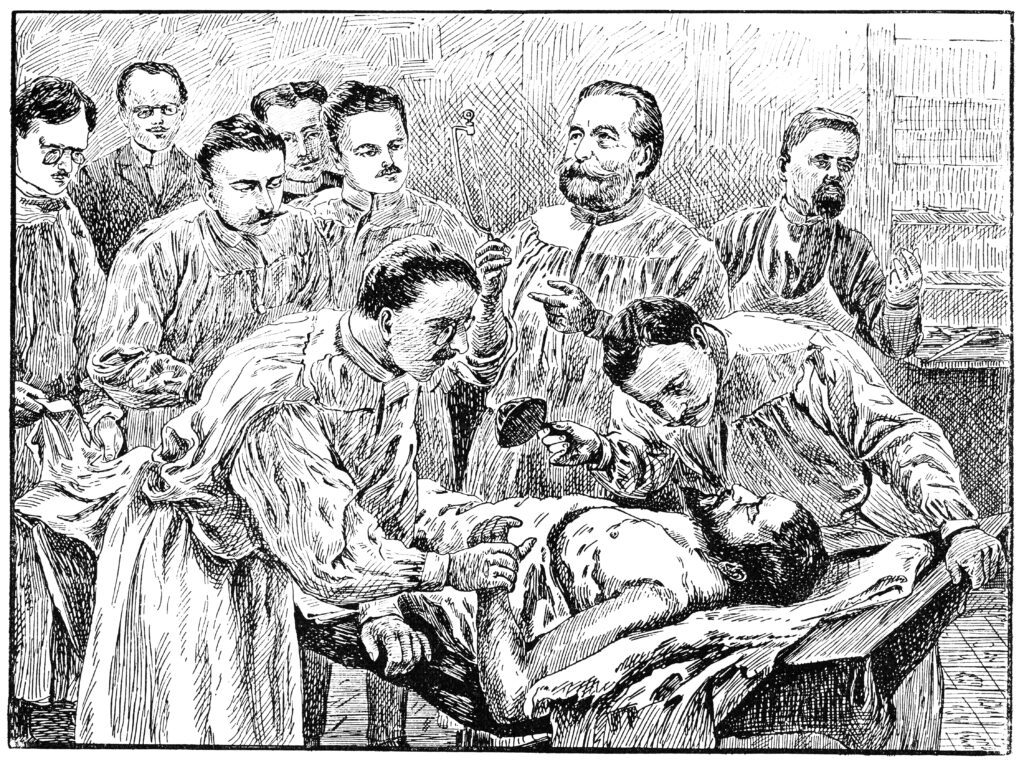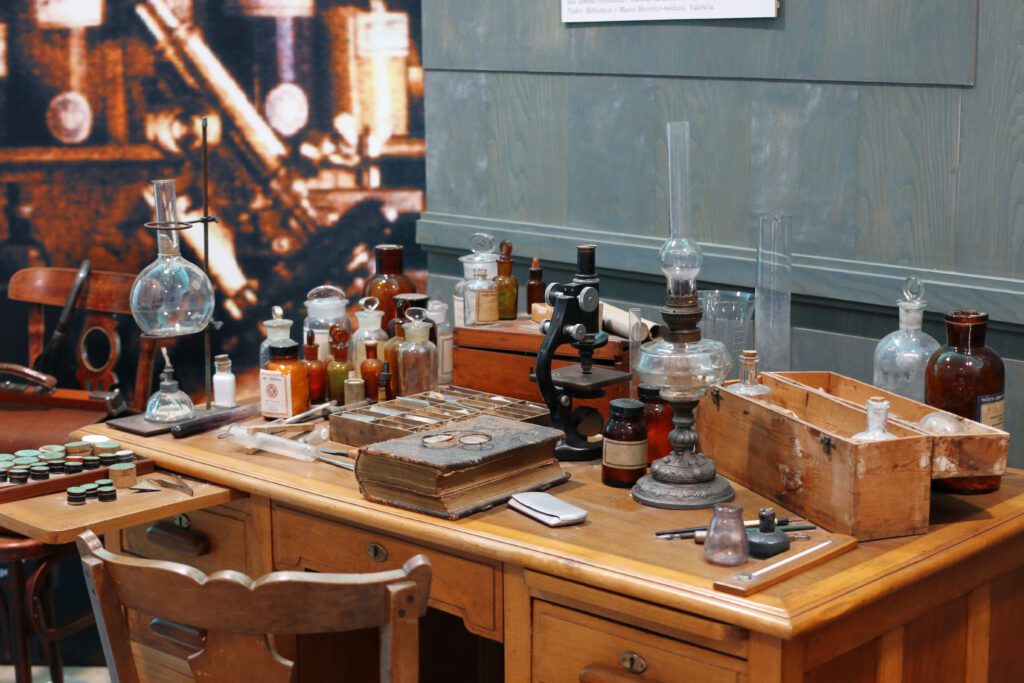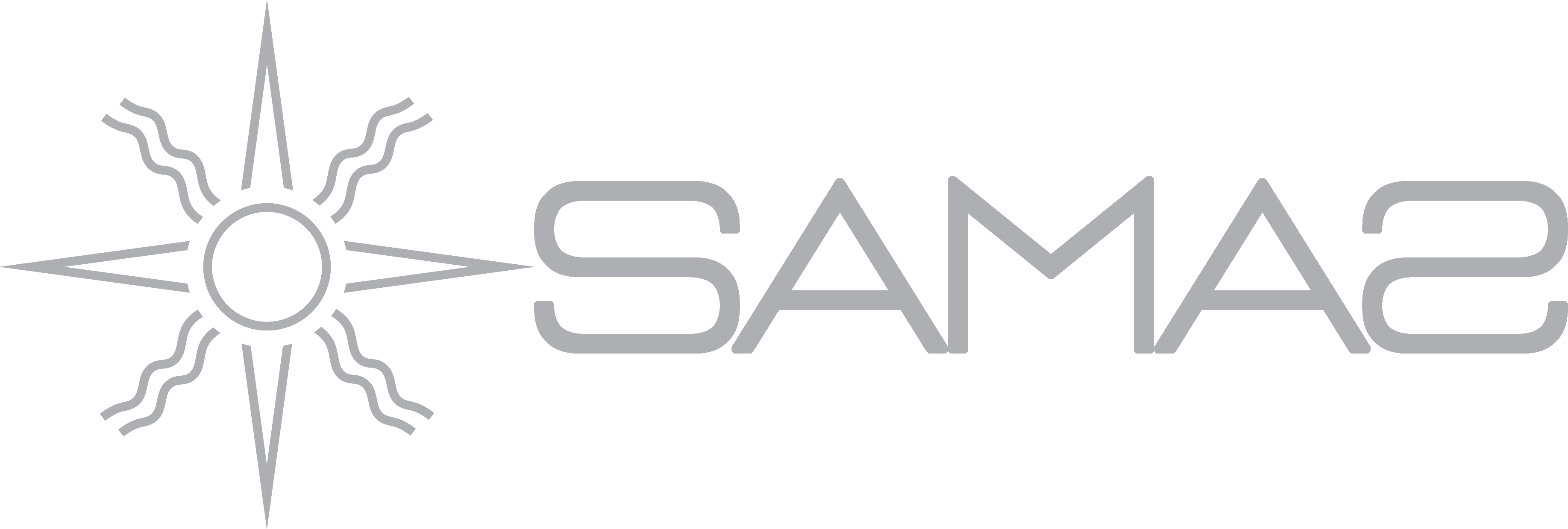Healing Through the Ages: A Journey into the History of Medicine

Humanity's quest to understand and control the forces that make the body sick is an ancient story that predates recorded history and is engraved in the practices of countless cultures around the world. In exploring the cradle of medical science, we uncover not only the roots of modern healthcare but also a deep understanding of the social and philosophical contexts that shaped it.
This comprehensive narrative begins with the cornerstones of ancient civilizations, moves through the corridors of the Renaissance marked by the rise of scientific inquiry, and extends to the present day, where the miracles of modern medicine are evidence of humanity's resilience and ingenuity. Join us as we weave a tapestry of medical history, highlighting the milestones and figures that paved the way for our understanding of holistic healing today.
Ancient Craft: Healing Rituals and Herbal Remedies
In ancient times, concepts of disease and healing were intertwined with spiritual beliefs that defined the material and metaphysical realms. From the wisdom of Imhotep, revered as the god of medicine in ancient Egypt, to the profound influence of Ayurveda in the Indian subcontinent, early medical practices were as much an art form as a science.
Egyptians: Wheels and Honey
Ancient Egyptians treated a range of ailments using both magic and practical medicine. Papyrus Ebers, a preserved scroll from around 1550 BC, outlines remedies for everything from a broken nose to heart disease, and includes the use of simpler ingredients such as honey, dates, and other botanical substances that form the basis of pharmaceutical practice.
Greeks: Asclepian Worship
For the Greeks, medicine was a craft of the gods, and temples dedicated to Asclepius, the god of healing, served as shrines for the sick. Patients were incubated here in the hope of healing through divine dreams, and this home of intellectualism produced physicians such as Hippocrates, who would later demystify medicine and make reason and observation the essence of medical practice.
Chinese: The Tao of Health
Rooted in the dualism of yin and yang, Chinese medicine focuses on harmony between the individual and his environment by adopting a holistic approach to health. The use of herbal medicines, acupuncture and Qigong formed part of a complex regimen aimed not only at treating disease but at maintaining balance in life.
Renaissance and the Birth of Scientific Medicine

The Renaissance, which emerged from the Dark Ages, became a source of light for the development of medical science. This was a period of discovery, in which the works of ancient scholars were rediscovered and re-evaluated, and in which the practice of dissection, which was taboo in the Middle Ages, burgeoned, forming the basis of our understanding of anatomy.
Vesalius and the Anatomy of the Human Body
Renaissance contemporary Andreas Vesalius challenged Galen's centuries-old dogmas by performing systematic human dissections. His major work 'De Humani Corporis Fabrica' corrected many misconceptions in Galenic medicine and presented for the first time an anatomical understanding of the human body based on empirical evidence.
Paracelsus and the Chemical Foundations of Medicine
Swiss-German physician Paracelsus was a pioneer in the use of chemicals and minerals in medicine and revolutionized pharmacology. His rejection of humoral theory in favor of discovering the properties of particular chemical substances laid the foundations for what we today recognize as the critical role of chemistry in medical science.
The Printing Press: A Catalyst for Medical Knowledge
The invention of the printing press was a turning point for the dissemination of medical knowledge. By enabling the mass production of texts, it made them more accessible and contributed to the democratization of education. Medical compilations and treatises became widely available, accelerating the dissemination of new theories and practices.
19th Century: Medical Discovery Craze
The 19th century was a period of unbridled discovery and innovation in medicine. The revolution sparked by the deciphering of the human genome and understanding of microorganisms laid the foundation for modern medical practices.
Age of Enlightenment: Reason and Observation
The Enlightenment's emphasis on reason and the scientific method marked a significant shift in medical theory. Practitioners began to view the body as a machine and diseases as the result of natural causes that needed to be investigated and treated with scientific rigor.
Discovery of Vaccines: Smallpox and Beyond
Edward Jenner's pioneering work with cowpox laid the foundation for the creation of the first vaccine to protect against smallpox. This breakthrough paved the way for new methods of disease prevention, significantly reducing the impact of once-fatal diseases.
The Germ Theory Revolution: Pasteur and Koch
Louis Pasteur and Robert Koch independently founded the germ theory, which proposes that microorganisms are the primary cause of many diseases. This theory was a turning point in the history of medicine, leading to the development of antiseptic techniques and the birth of modern bacteriology.
20th and 21st Centuries: Medical Miracles and Modern Medicine
The past century has seen an explosion of medical advances, from the creation of antibiotics to the sequencing of the human genome. Technological breakthroughs have reshaped our understanding of health and disease and ethical issues have come to the fore.
World Wars and Medical Innovations
The exigencies of war spurred medical innovations; The evaluation of battlefield wounds gave rise to new surgical techniques, and the urgent need for blood transfusions highlighted our need for a more standardized approach to blood typing and banking.
Antibiotics: Miracle Drugs
The discovery of penicillin by Alexander Fleming and the subsequent development of other antibiotics revolutionized the treatment of bacterial infections. It saved countless lives and laid the groundwork for the development of other antimicrobial agents.
Human Genome Project: Unraveling the Blueprint of Life
The completion of the Human Genome Project in 2003 was a monumental achievement, providing unprecedented insights into human biology and the basis of personalized medicine. This project ushered in an era in which treatments could be tailored to an individual's genetic makeup.
Influential People in Medical History
Throughout the ages there have been intellectuals whose work fundamentally changed the trajectory of medical science. They were not only individuals who made scientific breakthroughs, but also visionaries who transformed the way we think about health and healing.
Hippocrates: Father of Medicine
Often referred to as the 'father of Western medicine', Hippocrates laid the foundations for a rational approach to diagnosis and treatment. The Hippocratic Oath serves as an enduring symbol of medical ethics and commitment to patient care.
Florence Nightingale: The Woman with the Lamp
The importance Florence Nightingale gave to cleanliness and sanitation during the Crimean War led to a significant decrease in death rates. Her use of statistics and her pioneering work in practical nursing established the framework for modern nursing practice.
Jonas Salk: Polio Pioneer
Jonas Salk's development of the polio vaccine was a turning point in the history of medicine and heralded that a disease could be eliminated through vaccination. His work exemplifies the power of collective human effort toward a common medical goal.
The Legacy of Medical History in Modern Healthcare
The steps taken in ancient and modern medicine continue to shape our approach to healthcare today. Historical breakthroughs have not only increased our life expectancy, but also paved the way for new paradigms such as patient empowerment and the role of lifestyle in health.
Tradition Meets Technology: Integrative Medicine
The present age is witnessing the convergence of ancient practices and modern science. Integrative medicine aims to offer patients a broader range of care by blending traditional treatments with evidence-based medicine.
The Impact of Historical Healing on Diagnosis and Treatment
Diagnosis and treatment methods used today are based on a rich historical texture. While techniques such as magnetic resonance imaging (MRI) are built on principles established by Faraday and Tesla, modern herbal supplements find their roots in centuries-old medicines.
Ethical Dilemmas and Healthcare Delivery
The benefits of medical advancement also raise ethical considerations, such as the cost of advanced treatments, access to care, and the impact of automation on the healthcare workforce. Understanding the historical context of these issues helps us navigate the complex landscape of modern healthcare responsibly.
Result: Flexibility and Innovation That Define Medicine
The history of medicine is a story of resilience and intelligence, full of insights, breakthroughs, and occasionally serendipitous discoveries. It is a testament to our pursuit of not only survival but also well-being. As we stand on the threshold of new frontiers in healthcare, it is vital to reflect on the past and honor the giants on whose shoulders we stand, guiding us with their wisdom and pushing us towards a healthier future.
For those of us in the medical community, whether clinicians, researchers, or students, the lessons of history are a call to action to continue the pursuit of knowledge, practice with empathy and skill, and contribute to the age-old narrative of healing. As we look to the future, there is no doubt that the tradition of medical innovation will continue, and we can do so with deep gratitude to those who wrote the history of medicine before us.
Why Should You Choose Samas?
- Reliability: Samas is a reliable solution partner in the healthcare industry. It gives confidence to customers with its experience and quality service approach.
- 3M Quality: SamasMed offers products from the world-renowned 3M. It provides access to reliable and effective products with high quality standards.
- Wide Product Range: It offers a wide range of products including medical equipment, surgical supplies, hygiene products and more.
- Customer Satisfaction Focus: Samas prioritizes customer satisfaction. It offers the most suitable solutions with its expert staff.
- Fast and Reliable Service: Samas offers fast and reliable service. It strives to meet needs as soon as possible.
Samas is here to meet the needs in the healthcare industry and provide the best service.


Comments are closed